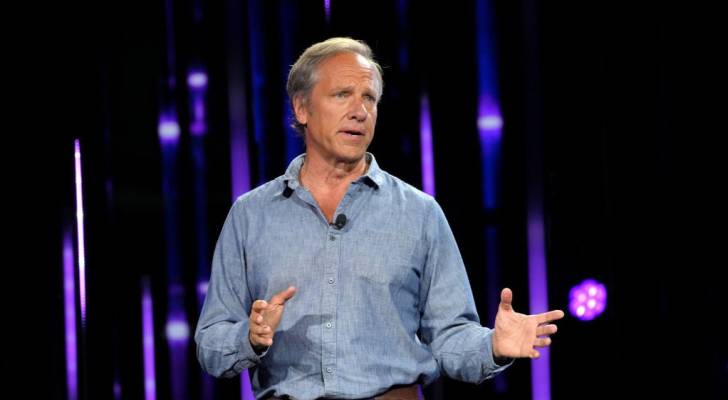
Mike Rowe, host of Dirty Jobs and CEO of the nonprofit Mike Rowe Works Foundation, says the U.S. is undergoing a “seismic shift” in workforce trends — toward skilled trades.
“There are 7.6 million open jobs that can’t be filled,” he told Newsmax — a figure that closely aligns with the Bureau of Labor Statistics’ June 2025 report of 7.4 million job openings.
The numbers highlight a massive mismatch in the labor market: strong job creation, but millions of able-bodied adults still out of work.
So what’s driving this disconnect? According to Rowe, traditional higher education isn’t aligning with market needs. He also noted that while AI and automation threaten many white-collar jobs, skilled trades — like plumbing, welding, and electrical work — remain "resilient in the face of technological change.”
"We are not suffering from a lack of graduates from four-year schools," Rowe said. "We are suffering from a lack of enthusiastic men and women who want to show up early, stay late, and master a skill that’s in demand."
Must Read
- Thanks to Jeff Bezos, you can now become a landlord for as little as $100 — and no, you don’t have to deal with tenants or fix freezers. Here’s how
- Dave Ramsey warns nearly 50% of Americans are making 1 big Social Security mistake — here’s what it is and 3 simple steps to fix it ASAP
- Robert Kiyosaki says this 1 asset will surge 400% in a year — and he begs investors not to miss its ‘explosion’
Rowe’s long game
For 17 years, Rowe has spotlighted the skilled trades through his foundation, which awards work ethic scholarships.
This year, applications "grew tenfold" compared to 2024, and the foundation pledged $5 million in scholarships targeting key sectors where labor shortages are pronounced in the trades.
According to Rowe, these sectors are "pretty much AI-proof" and include:
- 80,000 collision repair technicians in automotive
- 300,000 roles in the energy sector
- 500,000 electricians
The foundation highlights these careers as offering stability, solid pay, and opportunities for business ownership. Some scholarship recipients have gone from entry-level welders to running businesses generating $3 million annually.
Read more: Robert Kiyosaki warns of a ‘Greater Depression’ coming to the US — with millions of Americans going poor. But he says these 2 ‘easy-money’ assets will bring in ‘great wealth’. How to get in now
Are trades the smart bet now?
With job openings remaining high and AI reshaping many white-collar career paths, skilled trades stand out for several reasons.
First, they offer job security, as their demand consistently outpaces supply in key roles like electricians and welders. Their situational and physical complexity makes them resistant to automation.
An Axios analysis echoes this trend: AI advances are sidelining office roles but preserving, and even heightening demand for, physical skilled trades like plumbing, wiring, and HVAC maintenance.
Another study found that while AI threatens certain jobs, it simultaneously creates demand for human skills like resilience, agility, or analytical thinking — traits often found in skilled trades.
Beyond stability, these careers offer upward mobility and entrepreneurial potential, unlike many automated office roles.
That said, trades aren’t a one-size-fits-all solution. They can be physically demanding and may not suit individuals with certain health conditions or physical limitations.
Still, the core challenge for workers isn’t AI itself, but an increasing mismatch between the skills people acquire and the jobs that are actually available. Skilled trades training directly addresses this gap by equipping people with hands-on, job-ready capabilities.
What to read next
- Want to retire with an extra $1.3M? See how Dave Ramsey’s viral 7-step plan helps millions of Americans kill debt and build wealth — and how you can too
- I’m 49 years old and have nothing saved for retirement — what should I do? Don’t panic. Here are 6 of the easiest ways you can catch up (and fast)
- There’s still a 35% chance of a recession hitting the American economy this year — protect your retirement savings with these 5 essential money moves ASAP
- This tiny hot Costco item has skyrocketed 74% in price in under 2 years — but now the retail giant is restricting purchase. Here’s how to buy the coveted asset in bulk
Join 200,000+ readers and get Moneywise’s best stories and exclusive interviews first — clear insights curated and delivered weekly. Subscribe now.
This article provides information only and should not be construed as advice. It is provided without warranty of any kind.